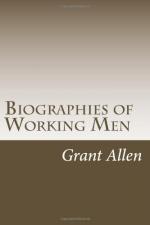III.
John Gibson, sculptor.
In most cases, the working man who raises himself to wealth and position, does so by means of trade, which is usually the natural outgrowth of his own special handicraft or calling. If he attains, not only to riches, but to distinction as well, it is in general by mechanical talent, the direction of the mind being naturally biased by the course of one’s own ordinary occupations. England has been exceptionally rich in great engineers and inventive geniuses of such humble origin—working men who have introduced great improvements in manufactures or communications; and our modern English civilization has been immensely influenced by the lives of these able and successful mechanical toilers. From Brindley, the constructor of the earliest great canal, to Joseph Gillott, the inventor of the very steel pen with which this book is written; from Arkwright the barber who fashioned the first spinning-machine, to Crompton the weaver, whose mule gave rise to the mighty Manchester cotton trade; from Newcomen, who made the first rough attempt at a steam-engine, to Stephenson, who sent the iron horse from end to end of the land,—the chief mechanical improvements in the country have almost all been due to the energy, intelligence, and skill of our labouring population. The English mind is intensely practical, and the English working man, for the last two centuries at least, has been mainly distinguished for his great mechanical aptitude, bursting out, here and there, in exceptional persons, under the form of exceedingly high inventive genius.




